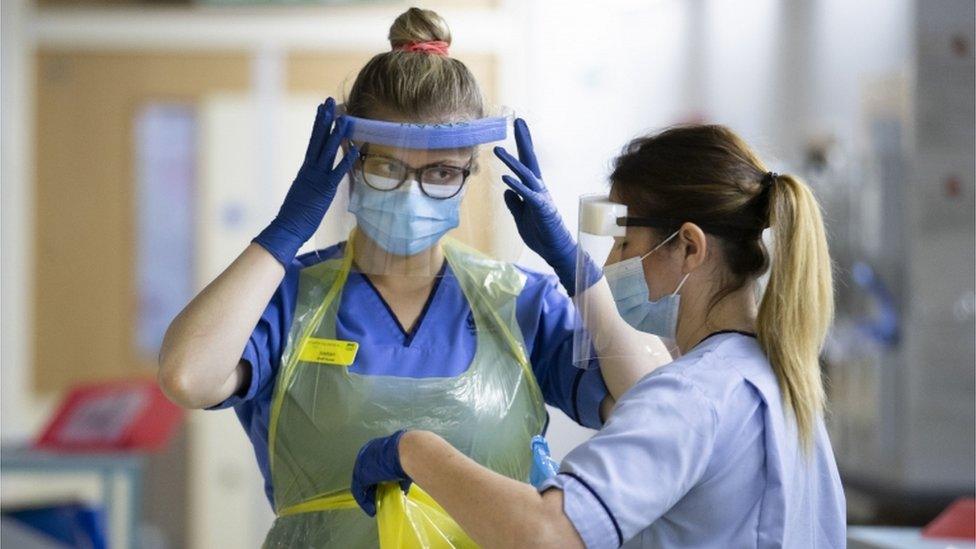Scottish Covid Inquiry: Care home residents 'left to starve'
- Published
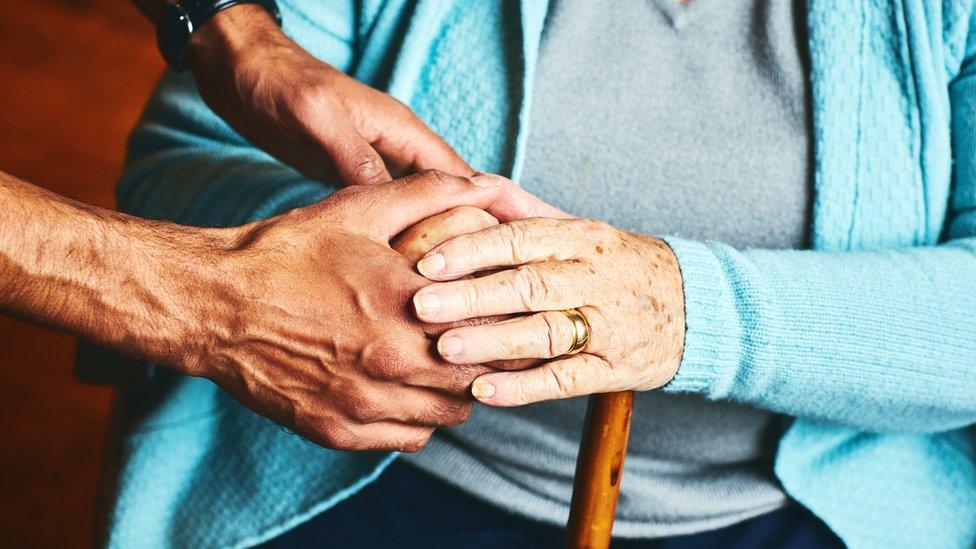
Some care home residents may have been "neglected and left to starve" during the pandemic, Scotland's Covid Inquiry is expected to hear.
Lawyers representing bereaved relatives said they also anticipate the inquiry will hear some people were forced into agreeing to "do not resuscitate" plans.
Shelagh McCall KC told the inquiry that evidence to be led would "point to a systemic failure of the model of care".
The public inquiry is investigating Scotland's response to the pandemic.
Ms McCall is representing Bereaved Relatives Group Skye, a group of bereaved relatives and care workers from Skye and five other health board areas of Scotland.
In her opening statement, she told the public inquiry that families wanted to know why Covid was allowed to enter care homes and "spread like wildfire" during the pandemic.
She added: "As well as revealing the suffering of individuals and their families, we anticipate the evidence in these hearings will point to a systemic failure of the model for the delivery of care in Scotland, for its regulation and inspection.
"We anticipate the inquiry will hear that people were pressured to agree to do not resuscitate notices, that people were not resuscitated even though no such notice was in place, that residents may have been neglected and left to starve and that families are not sure they were told the truth about their relative's death."
Ms McCall added that many families were thwarted in their efforts to find out what was going on with their relatives by some care homes, with many finding out about Covid outbreak on Facebook or in the media.
Ten residents died during a Covid outbreak at Home Farm care home in Portree, Skye, in 2020.
The case is being considered by the Crown Office and is also subject to a damages claim by the families of former residents.
This claim alleges air freshener was used as a disinfectant and there was a failure to provide some ill residents with oxygen.
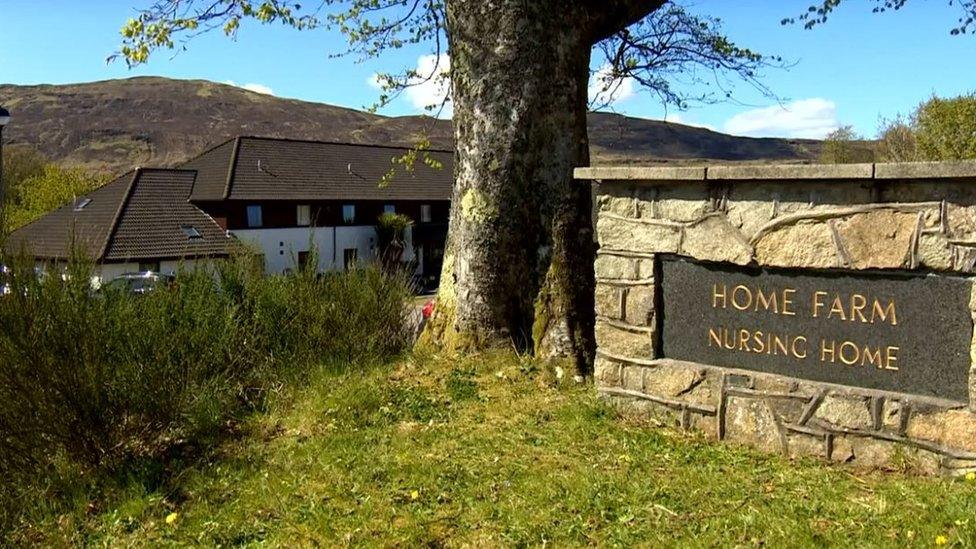
Home Farm was run by private operator HC One at the time of the 2020 outbreak
HC One, which ran the care home at the time, previously said that throughout the pandemic it had "worked tirelessly" to protect residents and staff.
Alastair Gray, representing Central Scotland Care Homes - a group of 21 small to medium-sized independent care homes - said its members "worked under extreme strain in exceptional conditions" throughout the pandemic.
He said: "The issued guidance changed frequently and the messaging that came through was often contradictory."
Mr Gray added there was an "unrealistic expectation of the pace of implementation" and that the "rapidly changing nature of advice meant there was worry among staff that they had been doing something wrong with previous guidance".
NHS recovery
The first two days of evidence sessions in the inquiry have heard about the impact Covid had on other parts of the NHS and social care sector.
The inquiry's approach is to look at the impact of the pandemic first, before turning to how decisions to respond to the crisis were taken, and then how Covid policies were implemented.
Elsewhere, Richard Pugh KC, representing Scotland's territorial health boards, pointed out the NHS had not yet recovered from the pandemic and "on current estimates are unlikely to do so for some time".
Mr Pugh put on record the health boards' gratitude to all NHS workers and added: "The emotional and physical toll of those caring for people dying without their family around them was huge, and the media images of those working in high risk areas - dressed fully in PPE caring for such seriously ill patients - will live long in the collective memory."
Women and children
The inquiry also heard that women and children were among the worst affected by Covid.
Andrew Webster KC, representing the Long Covid Kids Scotland campaign group, said: "Long Covid, the long-term illness caused by Covid, has blighted that prospect for too many.
"For too many, long Covid presents a seemingly insurmountable obstacle to an engaged, fulfilling and productive life."
Deirdre Domingo, of Scottish Women's Rights Organisations, said the idea that the pandemic affected everyone equally should be "firmly dispelled".
Ms Domingo said a key area of concern was the rise in domestic violence, sexual abuse and rape.
She said stay at home measures "overlooked that for many people, home was not the safest place to be".
Ms Domingo added: "One of the consequences of the imposition of lockdown and isolation rules was a rise in domestic abuse and violence."
Related topics
- Published24 October 2023
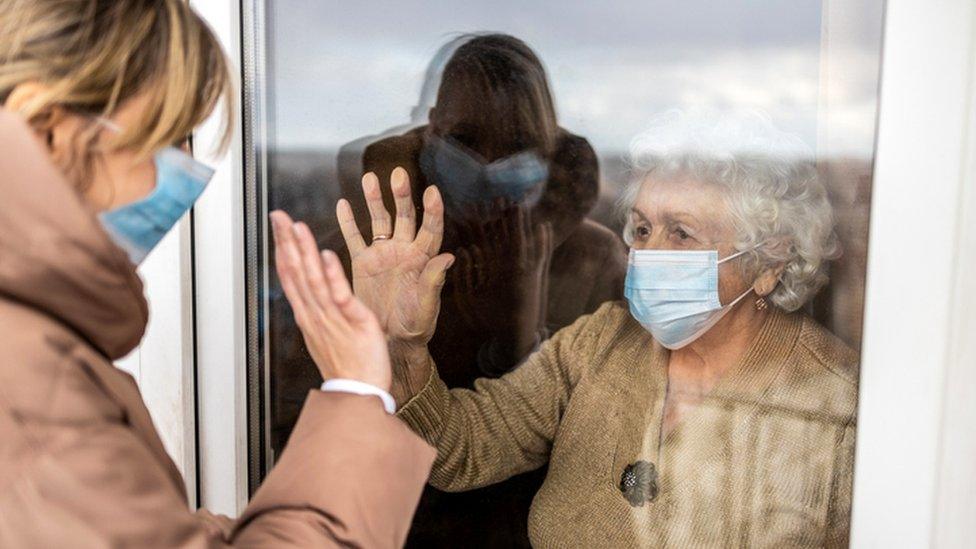
- Published18 November 2021
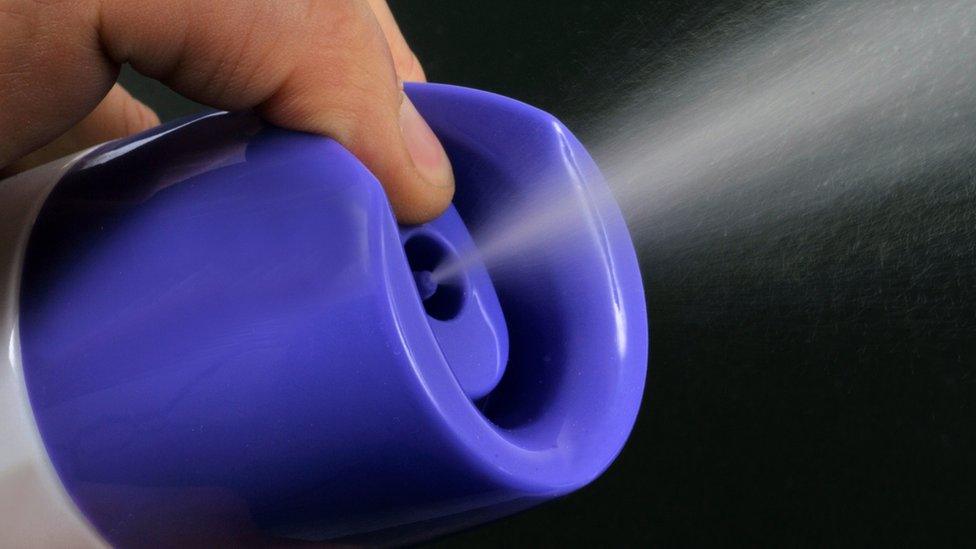
- Published24 October 2023
